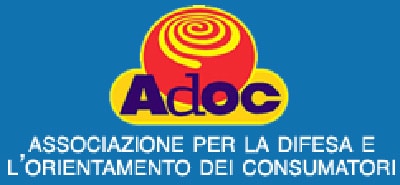
CAMPOBASSO. Class C drugs, non-essential medicines, without a prescription (SOP) and completely paid for by the consumer, cost more in Italy than neighboring France and Germany.
The Adoc survey examined five types of drugs (antipyretics, analgesics, anti-acids, pain relievers, anti-inflammatories) comparing, with the same concentration of the active ingredient and the quantity present in the package, the costs for the purchase in Italy, France and Germany.
On average, 125% less is spent in France for the purchase of an over-the-counter drug, 94% less in Germany. Considering that the average annual expenditure of an Italian family for the purchase of class C medicines is around 120 euros, it appears that for the same quantity of medicines in France 70 euros are spent per year (the 71% less), in Germany 55 euros (the 118% less). For example, a pack of antipyretics in Italy costs an average of 4.50 euros, across the Alps 1.95 euros (-130%), in Germany 2.40 euros (-87.5%). Huge price differences that weigh heavily on the accounts and needs of Italian families.
This increase in costs is added to the cuts in healthcare that Italian families and, in particular, Molise families have recently been suffering.
“The high costs of medicines have a profound effect on the accounts and on the health of families, starting from basic treatments – declare from Adoc Molise – Prices that are not in line with the European average also put the concept of the patient in crisis < >, transnational, tending towards greater accessibility, including economic, to health care and treatment".
“To all this, we must add the reduction of resources directed to health expenditure. It is necessary for politics to find the best solution in order to protect citizens - says Nicola Criscuoli, head of the association - and not to underestimate the need for prevention, maximum competence and accessibility, both in terms of health demand and health expenditure. Crucial is and will ensure a complete < > healthcare that can enhance the quality of services. Health cannot be touched”.
August 5, 2014 Termoli on line
(AGENPARL) - Rome, Aug 05 - The Constitutional Court and AIFA are opposing the sale of class C medicines. In fact, if in its latest ruling the Consulta claims that prescription medicines are fully liberalized except for a minimal exception (narcotic drugs, psychotropic substances, those of the endocrine system and those administered by parenteral route), and therefore also salable in parapharmacies, AIFA explains why in fact there are 5,430 prescription medicines (out of a total of 7985) while those without a prescription are only 2555, and that is the 30% of the entire C band. This is what the president of the Italian National Federation of Parapharmacies, Davide Gullotta, declares. “One of the two”, Gullotta points out. “If according to the Court, Class C drugs are already dispensed in parapharmacies, then AIFA must immediately apply the law by passing the majority of Class C drugs to SOP (without prescription); vice versa, if this were not the case, then the highest constitutional guarantee body described a state diametrically opposite to the one that actually exists and based a sentence on this: it is immediately necessary to clarify ".
Related news: the new compensation for French pharmacists will lead to an increase in cheaper medicines





